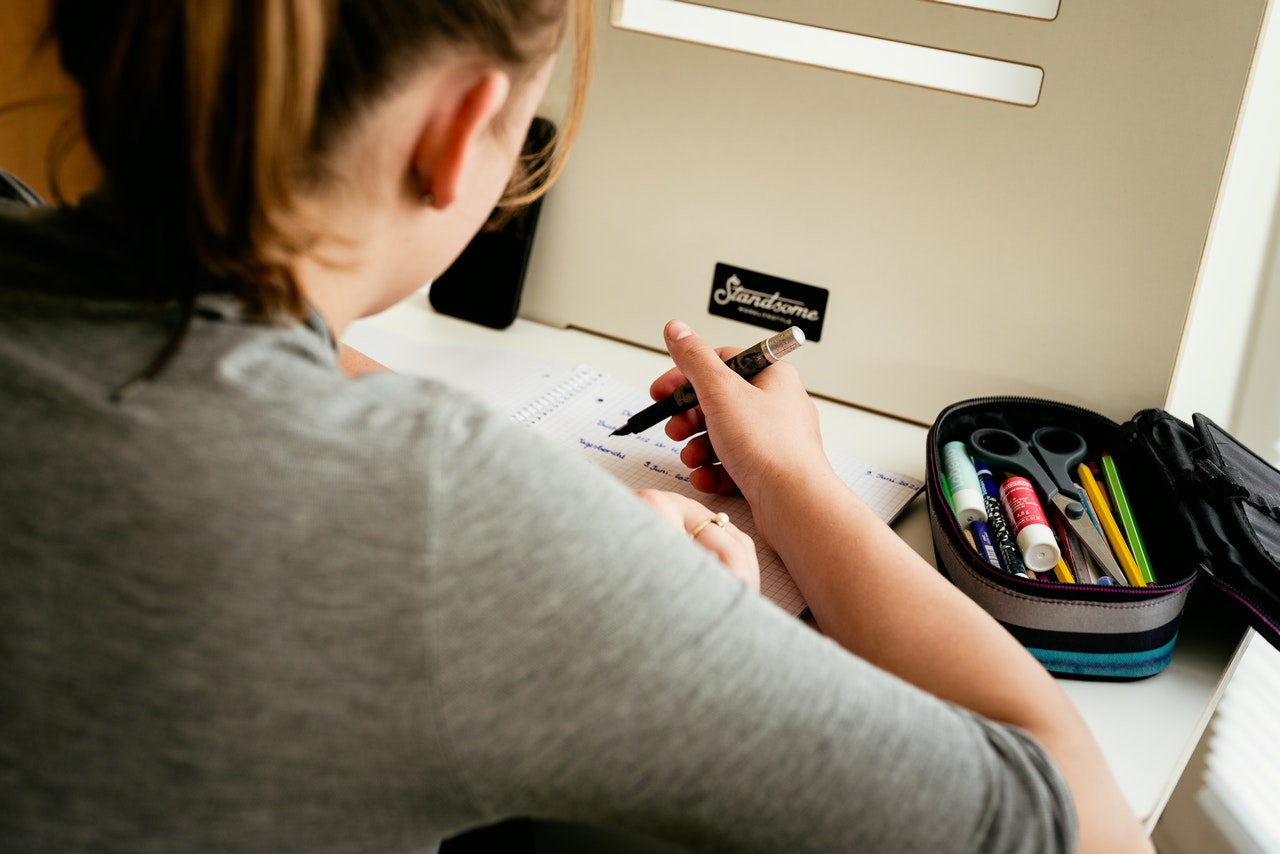With the last QCAA assessments approaching, stress can easily begin to mount, especially given that some subjects feature higher-weighted IA4s.
This period can easily trick you in terms of organising your study schedule and free time, as it’s very easy to stress and make time management mistakes, especially if your study consistency is lacking.
We’ll take you through our tips on how to organise your time effectively so you make the most of your final assessment, while maintaining a healthy study-life balance!
Let’s get started!
Tip 1: Visualise…
Tip 2: Know Your Attention Span
Tip 3: Identify Your Weaknesses
Tip 4: Balance Your Study with Your Life
Tip 5: Schedule Time for One Thing You Enjoy
Tip 6: Make Time for Physical Activity
Tip 7: Start Early!
Tip 1: Visualise…
At first, we tend to jot down our schedule on our phones, put it away in the notes section and never look at it again — this achieves nothing. If you’re going to be serious about organising your time, then the traditional way is the best in this case.
What does that mean? Get out a big piece of paper, colours, pens, and sticky notes. Make tables, underline, highlight, make arrows, draw, and find a wall to stick the finished product on.
Without being able to see your schedule everyday in front of you, you begin to get lazy and fall out of line. Not everybody has a photographic memory, and not seeing a reminder of your commitments often makes you forget them!
Also, use your creativity. You can make it as boring as you like, or as out-there as you like. Just make sure it is effective to your needs, and everyone’s needs are different.
Tip 2: Know Your Attention Span
This is crucial. More study sometimes isn’t the most advisable choice.
For example, for me, two hours is a stretch. With most people planning a 3 hour study session minimum per day, you can easily see how unrealistic everything sounds. I sincerely doubt everyone’s ability to work at 100% for more than 1 hour straight.
The key here is when to take breaks and what to do in these breaks. A five minute break each 20 minutes of work is reasonable.
Try and listen to music, or do something completely different and unrelated to what you are studying. Try to be realistic also. Studying something for three hours may be less effective than studying something for 2 hours, depending on your ability to stay focussed.
However, don’t be afraid to allocate unequal time to each of your subjects. Some subjects may require more study time, as they are either weighted more, have more content, or the content is more difficult. This leads us onto the third tip!
Tip 3: Identify Your Weaknesses
You must know exactly where your weaknesses lie, so you don’t spend time studying material that you’re already proficient at. Be sure to know that by ‘studying’ we also mean practising, whether you’re taking on practice maths questions, or writing essays.
Let’s say that you are struggling with a specific type of maths problem, a complex-unfamiliar type. Although it is best to practise all types of problems, your study should revolve around the types that you struggle with!
Aim to to work for at least 60% of your time on the things you don’t know. This will set you up for success in the long run, as it won’t just make you better, but it will give you more confidence in the exam, knowing that you have worked on the things you aren’t as familiar with.
Really struggling with Maths Methods? We’ve got the answer to whether you should drop to General Maths for your QCAA or not.
Tip 4: Balance Your Study with Your Life
You don’t just go to school. Of course, you need to make sure that you balance out your other commitments.
Remember that your life doesn’t just revolve around being a student, and that you’ll have other commitments, such as work, family and other things, that you need to prioritise.
The key here is to find time and make sure that none of these things impacts on your study. This can be difficult, as often you can’t control these things!
What helps is to map out the times you’re going to commit to these other obligations in advance, and plan your study around them. This will suffice most of the time.
If time is tight, you can ask for some obligations to be rearranged!
Does your school make the top schools list in Brisbane? Discover our research into the top public and private schools here!
Tip 5: Schedule Time for One Thing You Enjoy
Pick a non-physical activity you enjoy doing that engages your brain in a different way. Make sure it is something you enjoy and that forces you to think differently!
This will relieve stress and indirectly rest your brain, so that you can give 100% in your study time.
Make sure you give yourself roughly 1 hour of time dedicated to this activity which you can do between 3 to 7 times a week depending on your schedule.
Some activities you may want to engage in include:
- Strategy games
- Video games
- Writing
- Drawing
- Reading
- Playing music
- Going out with friends
…and a whole bunch more!
Making time for these sorts of activities will work wonders for your brain and give it the rest it needs.
Tip 6: Make Time for Physical Activity
This should be one of the first things you schedule — allocate roughly anything between 30 minutes to 2 hours of this on a regular basis. When you spend a significant amount of time sitting in one spot studying, it’s important to change things up and give your brain a refresh!
Pick a sport or exercise you enjoy — not just to take your mind off things but to improve in that particular skill. Use this activity as an outlet and it will help you to improve physically as well as in your study and concentration.
If you choose to play a sport, this means you’ll get extra time socialising, meaning you get to play with friends and do sport at the same time.
If you choose something like the gym, you’ll have the added benefit of taking your mind off studying and onto another type of grind.
Whatever you choose, make sure you never miss this when you schedule it. It is perhaps the single most helpful activity to schedule during final exam time.
Tip 7: Start Early!
If you know what you’re going to be needed for and when in advance, scheduling becomes much easier.
You’ll most likely begin seriously studying for your QCAA externals one month and a half prior to the exam date. You should have already been studying somewhat before this, so a month and a bit is reasonable!
This gives you 6 weeks — essentially a week for each subject if that’s how you want to look at it, or a day for each subject, since you have 6 weeks made up of 6 days (consider Sunday a rest day). You can either structure your study with a subject per day or a subject per week, either way, you’ll have more than enough time for anything.
This process only works out if you have been studying, or at least somewhat studying throughout the year, which most likely you will have! This is due to the fact that you’ll have done IAs 1, 2 and 3 up to this point.
It is hard to ultimately provide a framework that is tailored to everyone’s lifestyle, as everyone is different. You can however, use these guidelines to help you through the tough task of planning your study!
Looking for other QCAA resources?
Check out some of our other articles related to the QCAA below:
- The Complete Guide to all Term 3 Articles for the QCE
- What Are QCE Points and How Many Do You Need?
- How to Stay Motivated Throughout the Year During the QCE and Avoid Burnout
- Everything You Need to Know About the QCE and ATAR
- The Essential Guide to Applying for University Through QTAC
- The Ultimate List of QCAA Cognitive Verbs That You Need To Know
Are you looking for some extra help with studying for the QCAA Externals?
We have an incredible team of QLD tutors and mentors!
We can help you master your QCAA subjects and ace your upcoming exams with personalised lessons conducted one-on-one in your home or online!
The externals are the biggest assessments you have ever done as a student. Get tutoring for the QCAA External exams today!
We’ve supported over 8,000 students over the last 11 years, and on average our students score mark improvements of over 20%!
To find out more and get started with an inspirational QLD tutor and mentor, get in touch today or give us a ring on 1300 267 888!
Vittorio Manessi is an Art of Smart tutor based in Queensland studying environmental science. He was one of the first Year 12 students to study under the new ATAR system in Queensland. He enjoys Maths, Science, English and Ancient History and is keen to share his knowledge of the QCE by making awesome resources.







